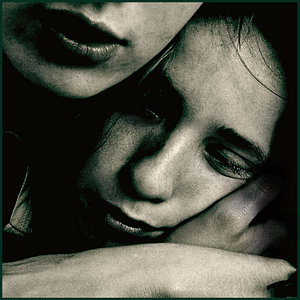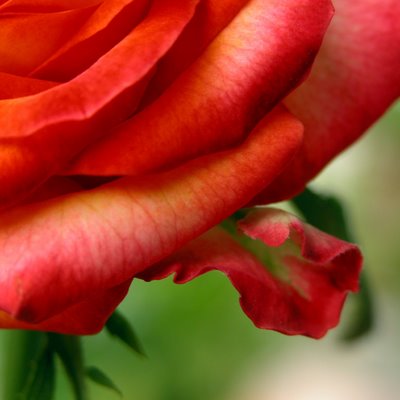
And even when the trees have just surrendered
To the harvest time
Forfeiting their leaves in late September
And sending us inside
Still I notice you
When change begins
And I am embraced for colder winds
I will offer thanks for what has been and what’s to come
You are autumn
And everything in time and under heaven
Finally falls asleep
Wrapped in blankets white, all creation
Shivers underneath
And still I notice you
When branches crack
And in my breath on frosted glass
Even now in death, you open doors for life to enter
You are winter…
(Nichole Nordeman, 2000)
In a tender moment of decision Gandalf gently, but with strong purpose, turns to Frodo and says, ‘All you have to do is decide what to do with the time that is given you.’
Sometimes our demons shout down the better angels in our brain…
Sometimes there is a sadness so deep no tears will come…
Sometimes in the night there is a deeper darkness to a night already devoid of stars…
As I find myself at the threshold of a new year, one question remains at the forefront of my psyche; what am I to be? As 2007 begins, I realise that I am no further forward, just further along. Every year seems to pass with greater speed and my concern as each closes has to do with what both I and we as a community have accomplished in those 365 days. After all life is not about just being good, surely its purpose has to do with being good for something.
So as we quite naturally pause and reflect at the beginning of this New Year on the issues of the day so, just maybe, we can put more energy into the more cerebral aspects of life. We are by nature ritual makers and there is something profound in that rite of passage that allows us to learn from and let go of the past. I am not talking here about some emotionally charged resolution that will be disregarded when normality once more reigns come mid January. Rather I am speaking of our duty to the soul. It is not just culture which is trying to balance religious obligation with secular freedom; there is a paradigm shift of the soul occurring where we wrestle with principles of inner reform. Intellectual ambivalence, cultural dismissiveness, and prioritization of our values have alienated us from the road less travelled. Modern Christianity has, unfortunately, provided us with a worldview that polarizes reason and faith, and so limiting (in Bunyan speak) the progress of pilgrims.
I meet too many spiritual refugees who have connected to something they believe to be true, yet know no longer know where to go to explore and develop that connection; people who, in the final analysis, are fearful that they may find themselves just beyond the love of God. So, is there a rhythm of worship, of living, that has roots, but is not too ‘churchy’, that reflects the human concerns of our time yet also lets heaven into our everyday world? - A rhythm that exposes the brutal reality of public life in the world of socio-political and economic darkness.
Yet for us to make holistically moral judgements for the betterment of the weak we may need to nurture connectors with that part of us which most of us dare not visit – the soul. For the Christian community to be the salt and light Jesus hoped for there must be a return to the deeply stirring art of lament and meditation, whereby the experiences and reflections contained are generated by a stirring which is not of our making.
My worry is that we so easily suburbanise our souls with theological band-aids out of a duty to be faithful to Christianity, and as a consequence our faith becomes parched and dry. Theologian Walter Bruggemann prudently observes that, ‘in Christian practice it is worth noting that in this season of cultural displacement in the Western church, the “exilic” voices of the Old Testament take on new authority and pertinence, among them the lament tradition that was never needed before in a Western church tradition that characteristically enjoyed hegemonic support and favour.’ New rhythms rooted to rich traditions of the past, yet expressed contextually for post-modern people must be encouraged and experimented with. We must have the courage to journey into the emerging church.
I guess all I am saying here is that we will have to find new expressions of church in order that the Incarnation might be made apparent and real to people. The post-evangelical debate makes the point that relevance involves almost constant willingness to reshape the tradition, given the rapidly changing nature of our current context. Furthermore it stated that if the church neglects the reshaping then consequently we preserve a gospel which says something quite different from what Jesus actually communicated.
Whilst reading Exodus the other day, and I was struck by a comment made by God to Moses. Whilst in dialogue concerning the people of God in the wilderness, He says this; ‘Why do you cry out to me? Tell the Israelites to go forward.’ When we look back at the history of the movement of God there have always been those wanting to return to bygone halcyon days (which I’m not sure ever really existed). Perhaps that should not surprise us. Faith though requires both courage and risk. To use the analogy from the story of the Exile, it just might be that we are called to enter the new land to tell the inhabitants the story of the Christ. And so it is at the genesis of 2007 we inhabit opportunity. It may be time to go back to the drawing board, and begin to reconcieve church as a by-product of following Jesus rather than a multinational with a gospel franchise.
I know that's all very theological, but it is rooted in human opportunity. You remember when we were young? Everything seemed possible and our future almost limitless, dreaming came without effort. Yet I guess most of us look back now and look at life more with sober reassessment, and perhaps we must look at our dreams realsitically even - who knows.
Often, not always though, our results bring a sense of disappointment the older we get - the things we were going to do and become but never managed. Clearly, and I suppose this is the essence of my ramble, there is a need to confront the reality of our lives and dare I say it, destinies, but to do it in such a way that it enhances our lives rather than limit them. In and amongst all this realism though I can from time to time when I'm still enough, hear the child who used to dream...
As Emily Dickinson so truly tells us…we dwell in possibility.
ps, happy birthday dad x




